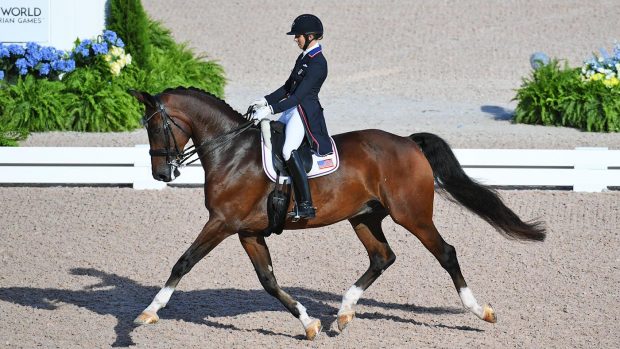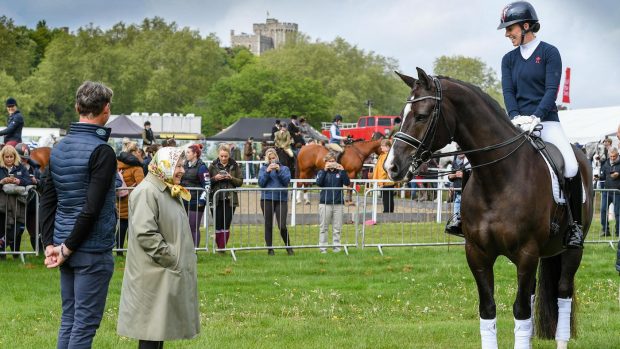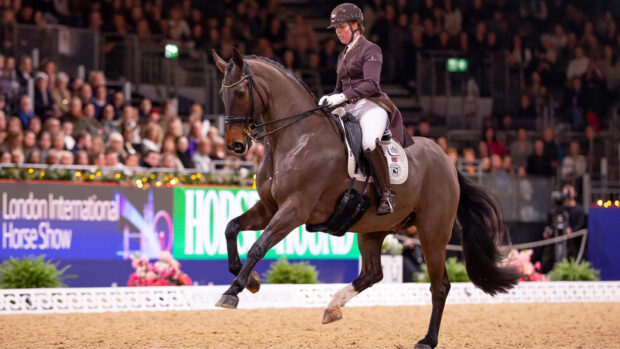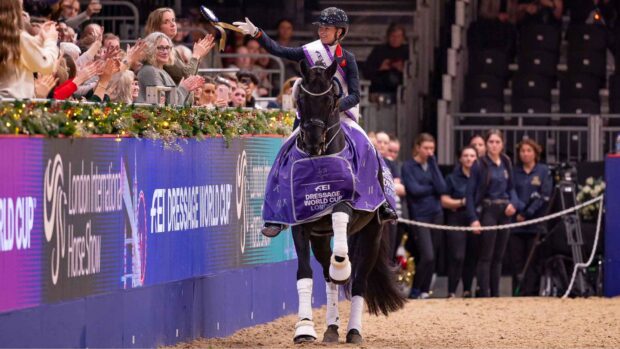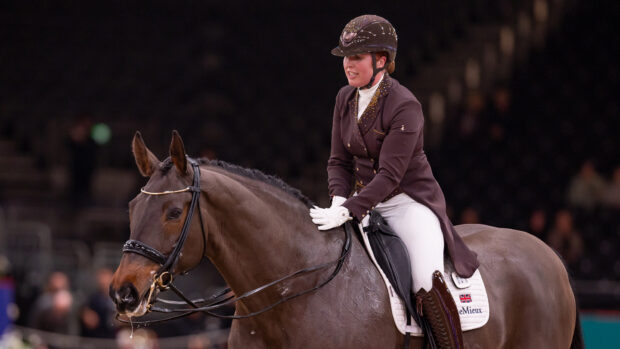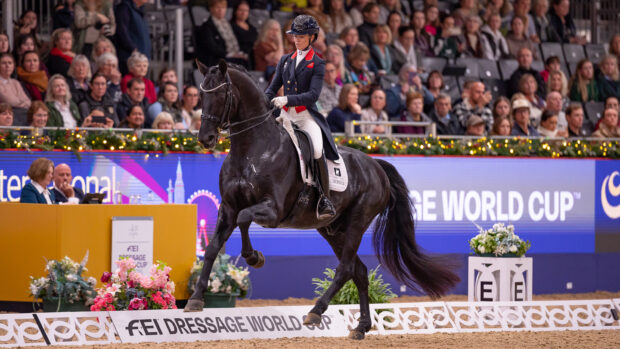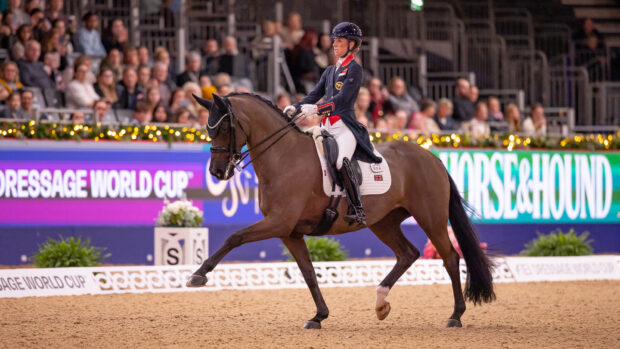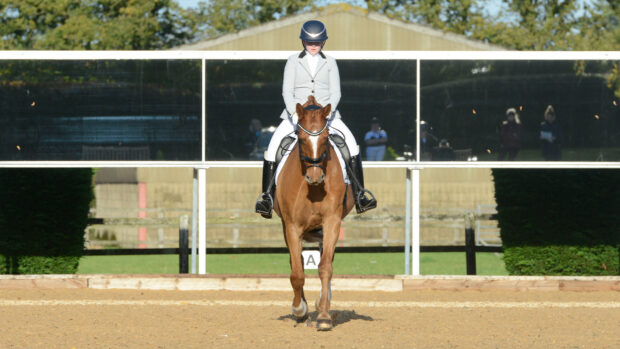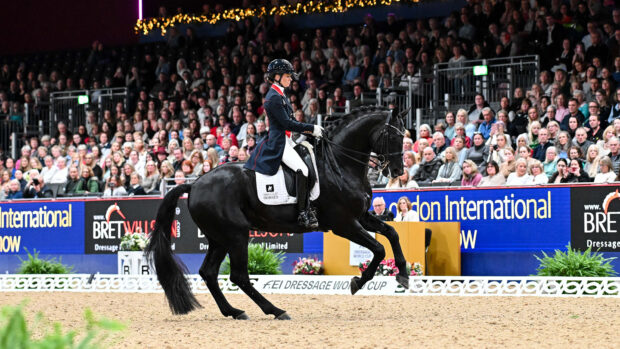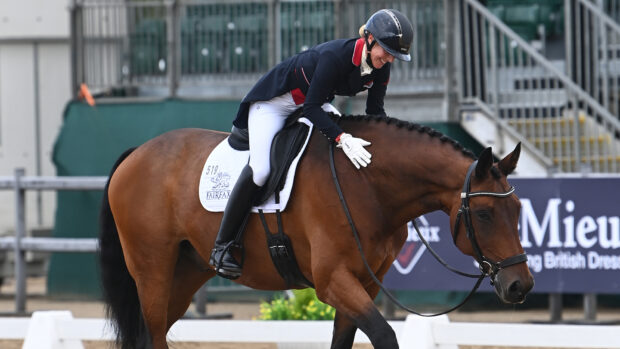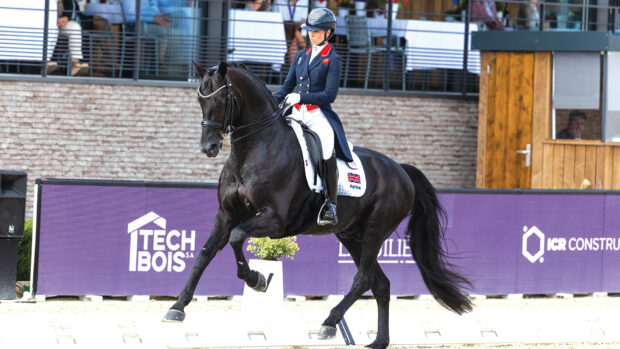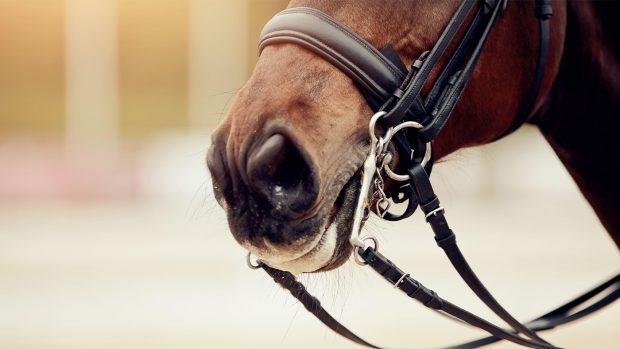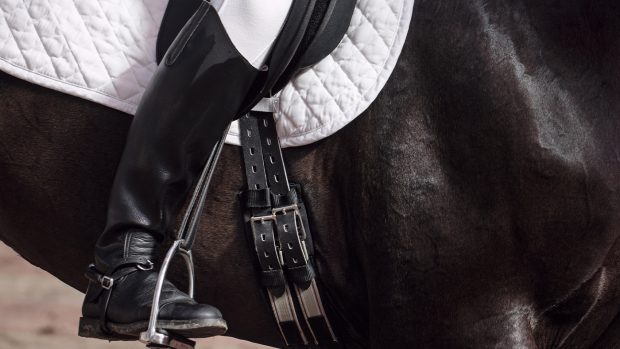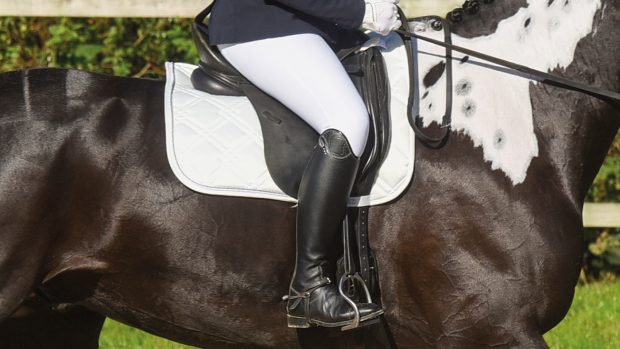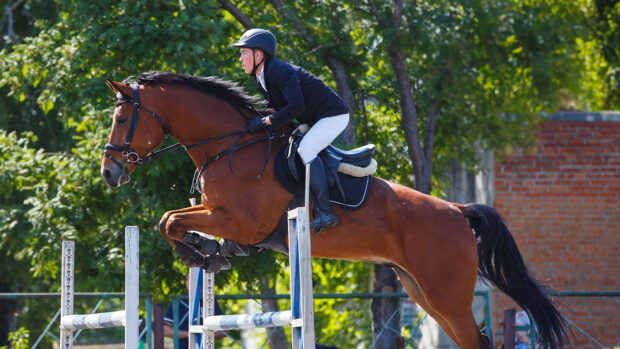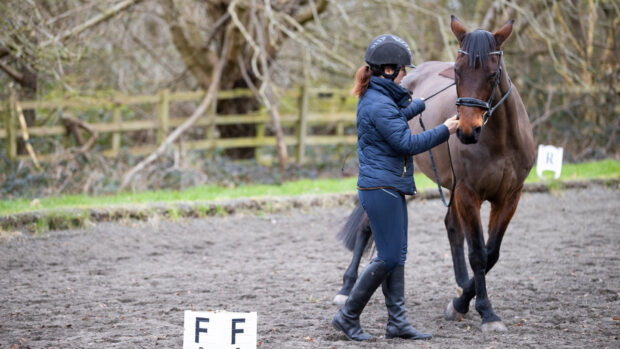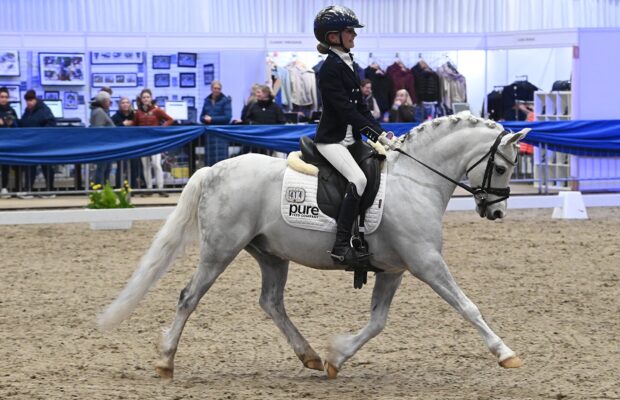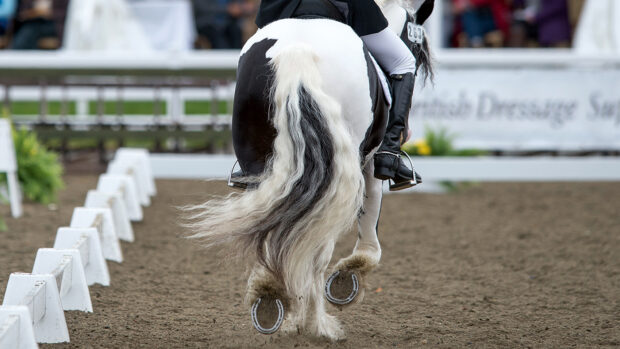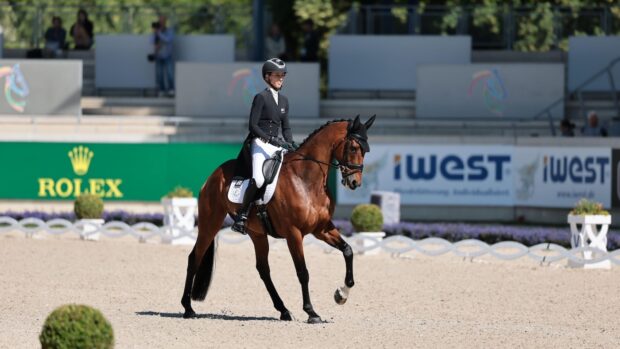Dressage
Dressage top stories
-
 Dressage
Dressage -
 Opinion
Opinion‘Even when you see the end coming, it doesn’t make it any easier’ – Carl Hester shares his special memories of Valegro and Uthopia
-
-
 Dressage
DressageBecky Moody and Jagerbomb unwrap brand new festive freestyle to finish second at London International
-
 Dressage
DressageGlamourdale Airlines takes off: ‘It might have been one of the best tests he’s ever done’
-
 Dressage
DressageInterrupted warm-up foils last year’s London grand prix winners ‘but he was a good boy’
-
 Dressage
Dressage‘There wasn’t a low light today’ – Lottie Fry heads British top three in London dressage grand prix
-
 Dressage
Dressage‘It gave me a real buzz to be back’ – Charlotte Dujardin makes emotional return to London International
-
 Horse and rider training
Horse and rider trainingHow to ride the perfect centre line, with tips from Olympic medallist Laura Tomlinson
It opens and finishes each dressage test you ride, and that's why the centre line should never be underestimated. Here we explain how to nail…
Dressage opinion from H&H columnists
-

Pammy Hutton calls for ‘an X Factor-type operation for equestrian sport’
-

‘It’s time to make people curious about dressage by showing its beauty when done well’, says Laura Tomlinson
-

‘What are we waiting for?’ asks Carl Hester following the FEI General Assembly
-

‘We need to be braver when celebrating our sport – and champion our heroes,’ says Anna Ross
Tack and clothing
-

9 smart double bridles you can order today
-

The best short dressage girths for horses at every level
-
-

17 dressage saddles to dream about
-

11 stylish pairs of men’s competition breeches to suit all budgets
-

15 of the best competition breeches to wear in the saddle this season
-

From tweed to tech: 7 best men’s show jackets for style and performance in the ring
Training tips
-

Why in-hand work could be the missing piece in your dressage training: four simple exercises to build your horse’s strength, suppleness and focus
-

Train your native pony to ‘steal the show’ in the dressage ring with these 4 exercises, expert tips and polework patterns
-
-

‘People don’t expect it, but they absolutely can do it’: top tips and 5 exercises to train your cob to excel in the dressage arena
-

Who says thoroughbreds can’t do dressage? Top tips and 4 exercises to make the most of your retrained racehorse’s highlights
All about dressage
The sport of dressage involves horse and rider performing a pre-set pattern of movements appropriate to their current level of training. In freestyle competitions riders have to perform set movements, but can do so in any order and at any place in the judging arena and this is set to the rider’s choice of music.
In order to compete successfully in dressage, the horse must be expressive yet obedient and able to maintain the correct body form without any signs of stiffness. The sport has been described by the layman as ‘equine ballet’ and ‘dancing horses’.
Competition in the UK, which is overseen by governing body British Dressage, starts at intro level, where only walk and trot movements are performed, right through to grand prix, which is the level seen at the Olympic Games.
There are dressage competitions available for disabled riders, although some of the top para dressage riders also compete in able-bodied competitions. Britain has an outstanding record in international para dressage championships.
